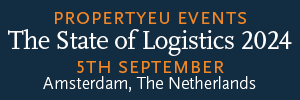Digitised and centrally stored data is crucial if the real estate industry is to successfully implement the growing number of ESG regulations and advance its journey to a net zero world, writes Rosanna Woods of software provider Drooms.
ESG has fast become the most commonly used term by regulators, investors and the media alike as they all look to tackle the greatest existential threats to society today – climate change and social inequality.
Although undoubtedly a global phenomenon, the European Union has arguably led the ESG charge from a regulatory perspective, particularly around climate change. Not only has the EU set ambitious targets – reducing carbon emissions by 55% from the levels seen in the 1990s by 2030 and becoming a carbon-neutral economy by 2050 – it has also set in motion several data-heavy disclosure requirements for companies and investors to show how they are making the world a greener and better place.
With the implementation of the EU disclosure obligation and the EU Taxonomy regulation as a component of the so-called European Green Deal in 2021, the European Union is increasingly demanding that sustainability be made visible to achieve climate goals. Not only are the EU member states following the ESG guidelines initiated by the EU, but the UK and Switzerland are also following their lead. This once again highlights the international implications of the current ESG discussion and shows the urgency of minimising CO2 emissions and consequently slowing down global warming.
What does ESG mean for the real estate industry?
As it is responsible for around 40% of global CO2 emissions, the real estate industry in its entirety has a truly pivotal role to play in the pathway to a net zero world. Therefore, the ESG credentials of building real estate assets and the ongoing operations of these assets will not only have to be taken more overtly into account, but also reported on in a clear and transparent manner.
From an investment perspective, the Taxonomy regulation coupled with the growing demand for ‘greener’ products will also likely have a profound impact on pricing and demand across the real estate market. Therefore, investors and regulators demand and need more transparency in real estate data. Comprehensive information is needed to identify sustainable investments more easily and at the same time ensure credibility. This is the only way to assess risks more easily and make targeted investment decisions.
Fulfilling ESG criteria with the help of digitisation
In accordance with the new regulations, climate and environmental risks will need to be more stringently and comprehensively documented and continuously analysed. Information such as sustainability risk assessments, environmental reports, certifications and appraisals will all be required for investors as well as due diligence. This means that companies must work with large amounts of data.
A complete database helps to identify the advantages and weaknesses regarding ESG guidelines and enables the creation of meaningful reports. This requires a central and reliable source of information that can be accessed at any time, from anywhere. This is precisely where the use of digital platforms comes into play, where relevant information is centralised in one place, which Drooms makes available to its users.
The software provider's digital solutions and services enable the entire lifecycle of an asset to be efficiently mapped on one platform from start to finish. They give a structured overview of the data which is relevant to check the ESG compliance throughout both the holding and selling phases of real estate assets, helping companies and investors to meet regulatory requirements and ensuring transparency throughout the investment lifecycle.
Moreover, managing these administrative and data analysis processes digitally also has its own positive impact on the environment by reducing paper consumption and international travel which make up a significant chunk of the world’s CO2 emissions.
The real estate sector’s journey to becoming more sustainable is increasing the pressure for digitisation in the industry. With greater digitised data, comes greater transparency. This not only leads to more seamless ESG compliance, but moreover, paves the way for ESG to be fully integrated into a company’s strategy. Furthermore, digitisation is the key to the professional implementation of ESG guidelines. The time is now for the real estate industry to fully embrace the digital, green age in order to effectively perform its pivotal role in delivering a more sustainable world.
Rosanna Woods is Managing Director UK and BeNeLux at Drooms
For more information go to https://drooms.com/




































